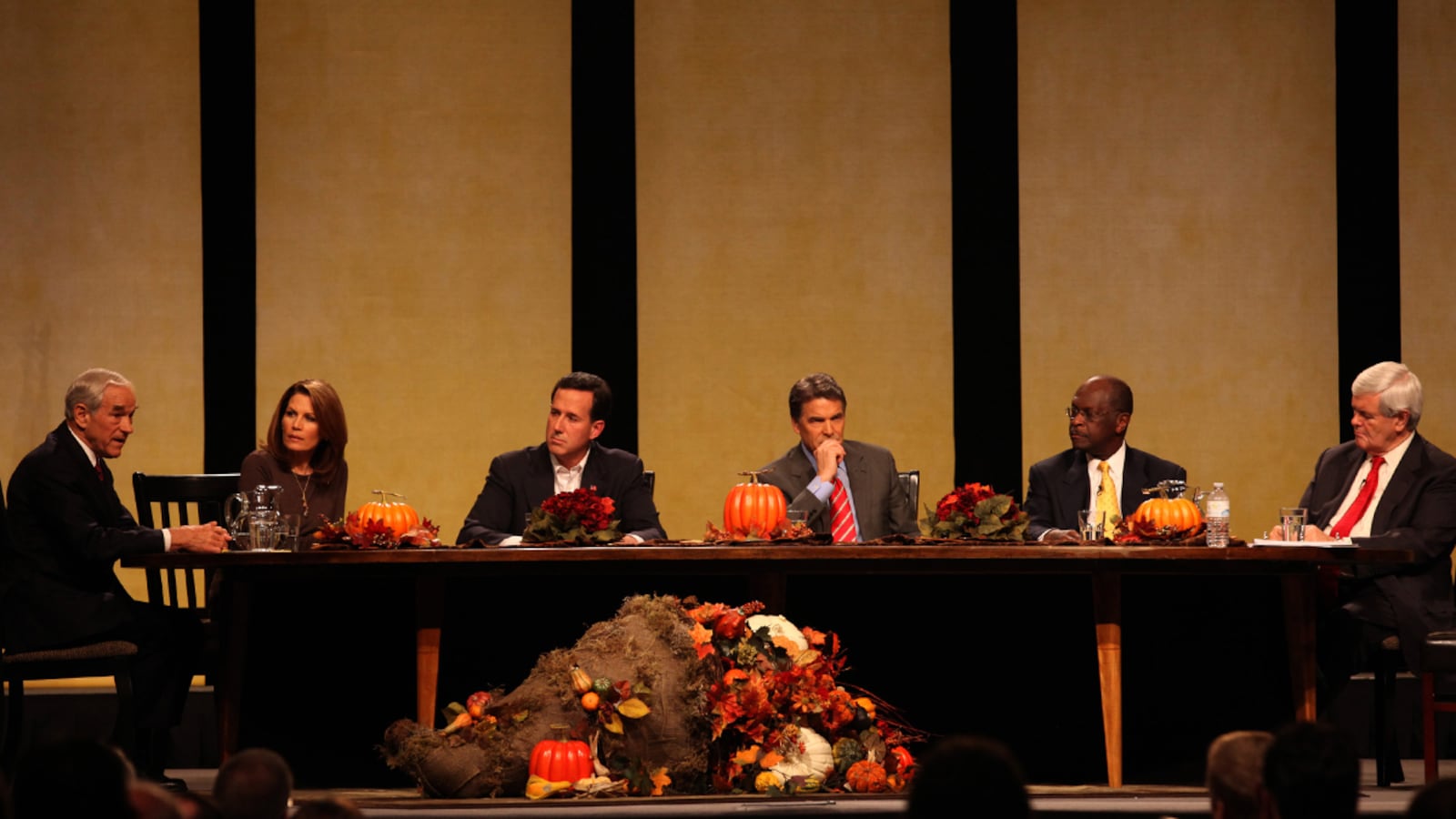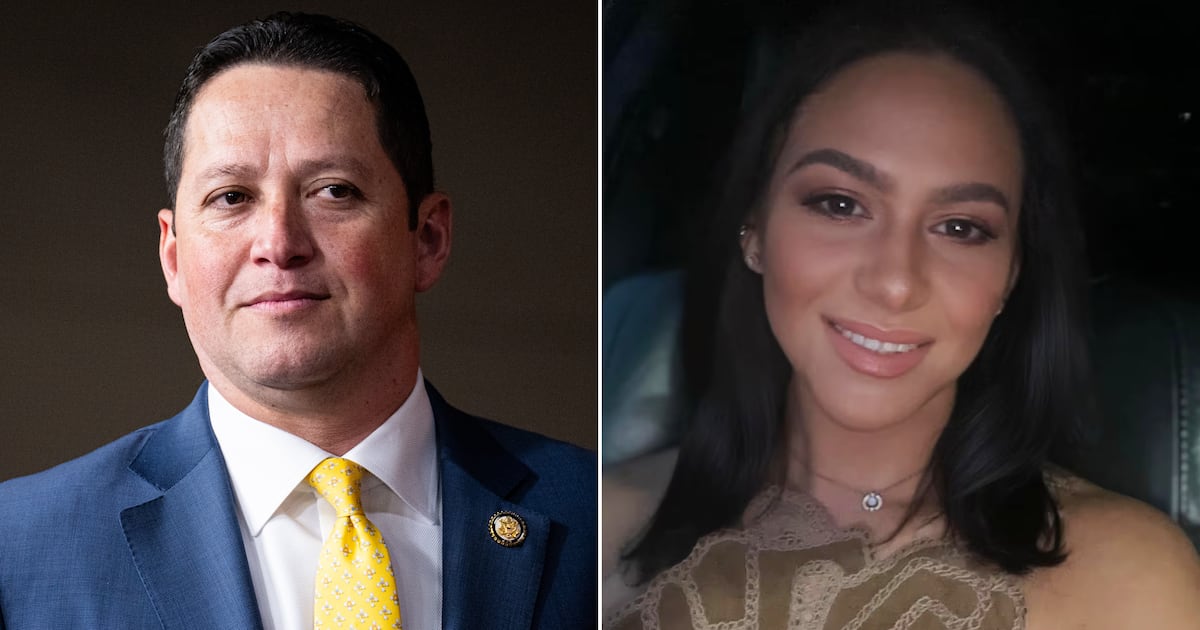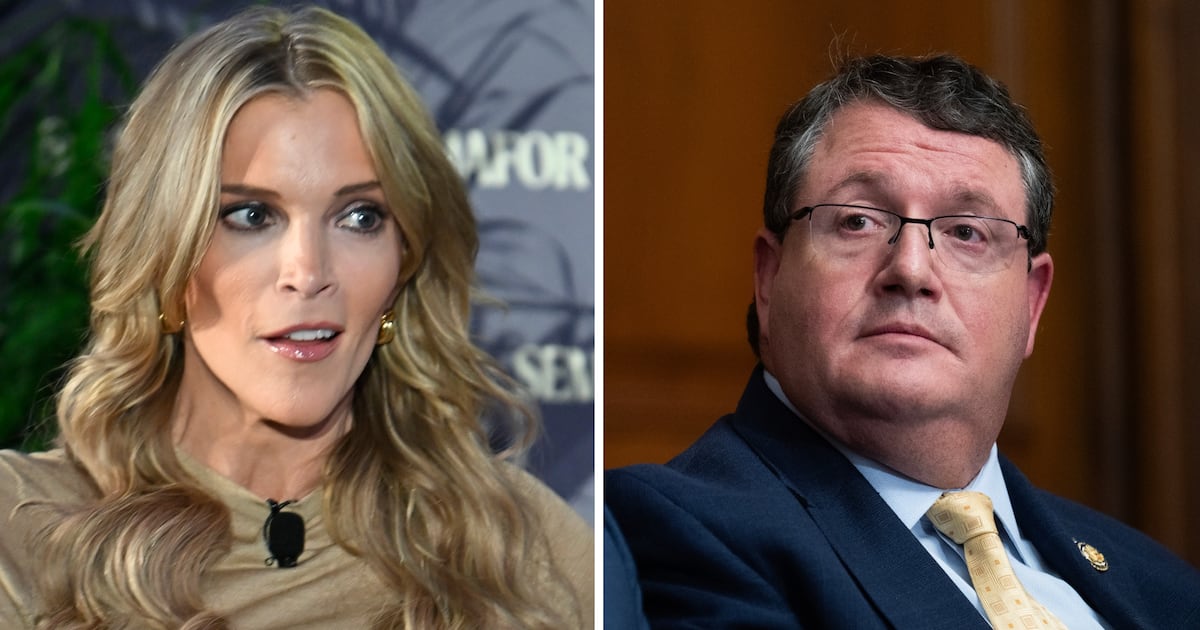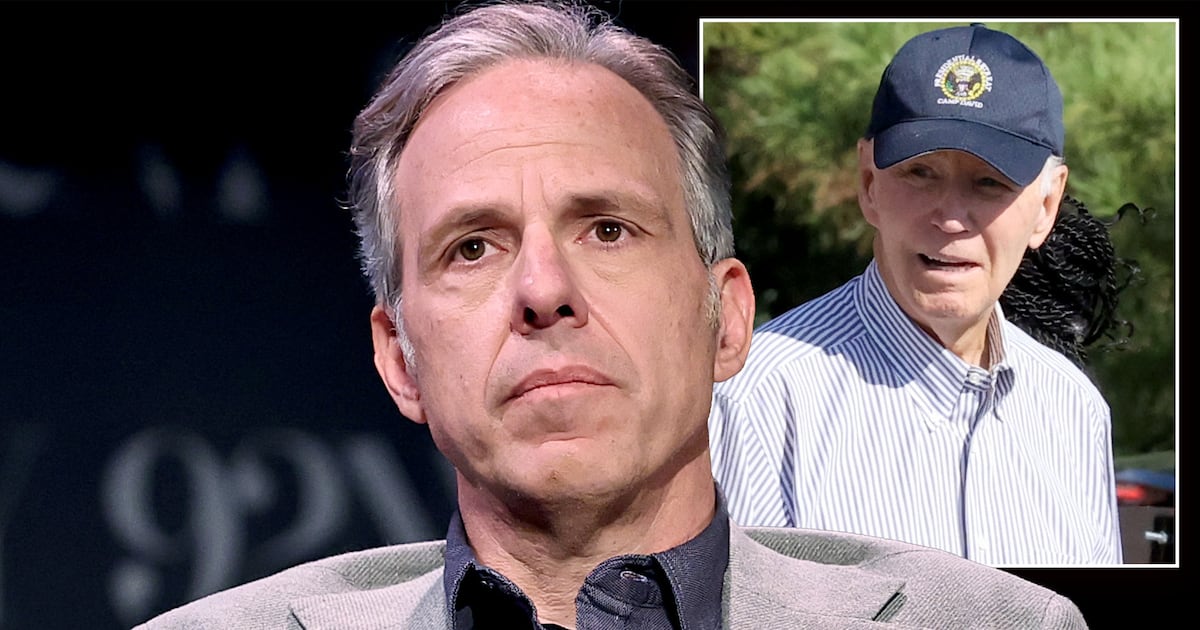Iowa, Iowa, Iowa. Only in the assertively Christian land of the first presidential caucuses would there be a Republican candidate forum that gave us grown men in tears, a moderator who said he felt like Dr. Phil, and a prospective female commander in chief filling the water glasses of all the males onstage. Not to mention lectures on values and morality by one candidate whom four women have accused of sexual harassment and another who has admitted to cheating on not one but two wives.
None of this appeared to faze the 3,000 people gathered in the First Federated Church in Des Moines for the Thanksgiving Family Forum. This is, after all, Iowa. Nearly half of likely caucusgoers said in 2008 that they were born-again or fundamentalist Christians, and Mike Huckabee—a Baptist pastor—ended up winning the night.
The two Mormons in this year’s race—Mitt Romney and Jon Huntsman—were conspicuously missing from the event sponsored by three conservative Christian organizations: the Iowa-based Family Leader, the National Organization for Marriage, and CitizenLink (the activist arm of Focus on the Family). Of the six who came, most were on comfortable turf. But with Newt Gingrich, suddenly a frontrunner nationally and in at least one poll of Iowa, it was hard not to think of the Sesame Street song, “One of These Things Is Not Like the Others.”
True to form, Gingrich offered up several over-the-top lines that may be bound for his greatest-hits list. To Occupy Wall Street protesters: “Go get a job, right after you take a bath.” On the idea of an atheist as president: “That person terrifies me because they completely misunderstand how weak and how limited any human being is.” On the left’s alleged intent to “impose intolerance”: It’s “a mortal threat to our civilization.” On the role of religion: “We have attempted to create a secular country, which I think is frankly a nightmare.” On a paper he wrote and published at Newt.org about the Supreme Court: "Probably the boldest statement since Lincoln’s first inaugural took on the Supreme Court over the Dred Scott decision."

The crowd ate it up. Yet his presence—and his past as what gay writer and talk-show host Mike Signorile called a “thrice-married serial adulterer”—created some awkward juxtapositions: Gingrich lecturing on morality (“I don’t think liberty means libertine. I don’t think liberty means absence of values”). Gingrich standing by as Rick Santorum attacked the alleged liberal ideal of “no-fault freedom … If it feels good, the whole sexual revolution, don’t think about the consequences of your actions, just do what you feel like you need to do.” Gingrich, who divorced his first wife during her recovery from cancer, standing by as a tearful Herman Cain described his wife’s commitment to helping him battle stage IV cancer.
Gingrich, who has converted to his current wife’s Catholic religion, addressed his failings during a section of the roundtable dedicated to challenges and forgiveness. “There was a part of me that was truly hollow. The harder I worked and the more things I did, the hollower I got inside,” he said. He said he wasn’t drinking but had been collapsing much like an alcoholic, and suggested he recovered—and sought God’s acceptance—after a friend gave him two books about Alcoholics Anonymous.
Gingrich has a gender-gap problem, and it’s unclear if such acknowledgments will be enough to shrink it. For some Christian conservatives, for some women, appearances like this may help put him back into contention. How it plays beyond Iowa or the GOP is unclear.
If they want something completely different, there’s always Rick Perry. He’s at ease talking about his faith and you won’t hear him dropping references to Augustine, the French Revolution, or the three Enlightenments. In fact, Perry joked that he graduated in the top 10 of his high-school class of 13 and fully intended to be a veterinarian until he encountered organic chemistry. He also followed in the footsteps of George W. Bush and Sarah Palin on Saturday by coining a new word: “proselyted.” As in a scoutmaster “proselyted” his charges, including Perry, to go to Texas A&M.
There’s also Michele Bachmann, who talked about her family’s fall into poverty after a divorce and sent out an email during the debate to accuse Gingrich of moderation on abortion. There’s Cain, who teared up not just about his cancer but also about how he should have spent more time with his kids while they were growing up.
And there’s Santorum, who choked up talking about how he had kept a distance from his disabled daughter, Bella—“seen her as less of a person because of her disability”—so it wouldn’t hurt as much if he lost her. He also insisted that “our country will fall” if we don’t protect traditional marriage. States didn’t have the right to allow slavery nor do they have the right to allow gay marriage, Santorum said, because both are “morally reprehensible and wrong.”
The gay-marriage issue is particularly resonant in Iowa, which threw out three judges who had ruled it constitutional. Yet the rest of the country is gradually coming to support gay marriage—majorities in some polls. It’s just one more reason Iowa is a singular political landscape, focused far more visibly than most places on social and religious issues, and less on the economic and foreign-policy problems on most voters’ minds.






